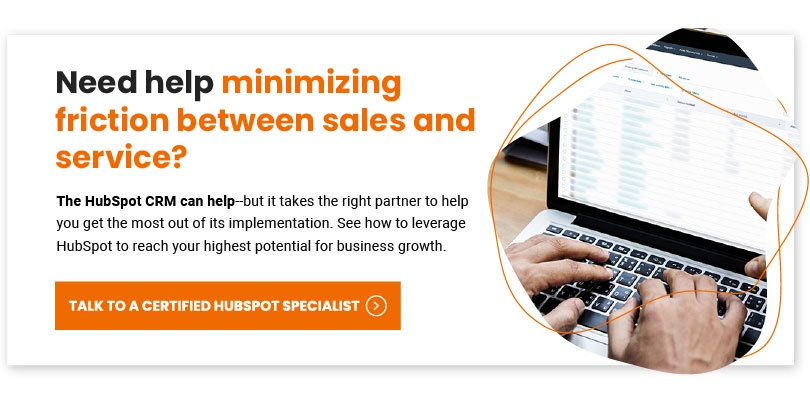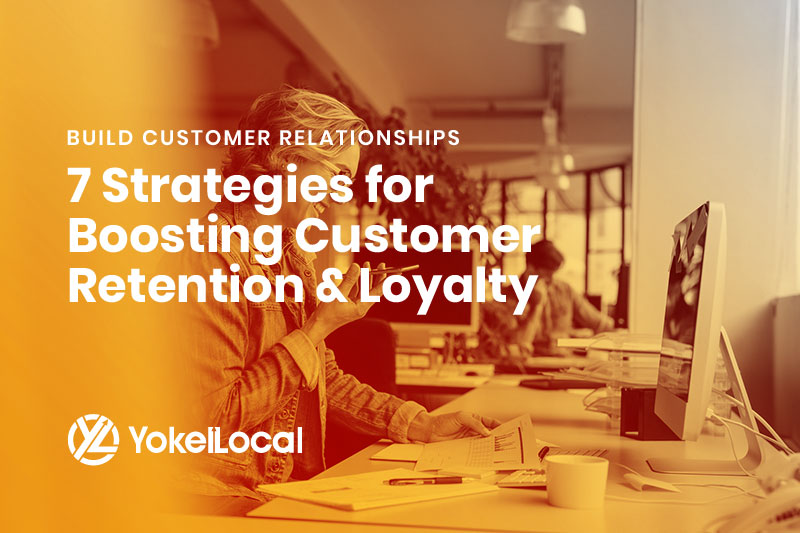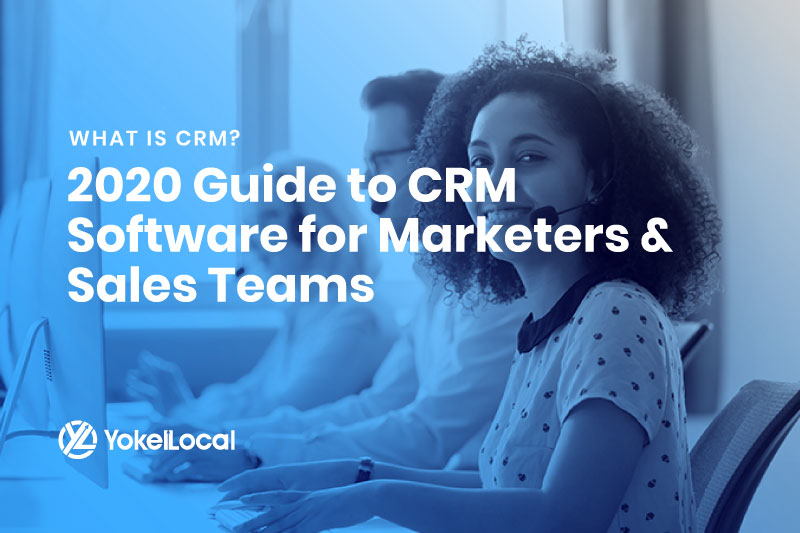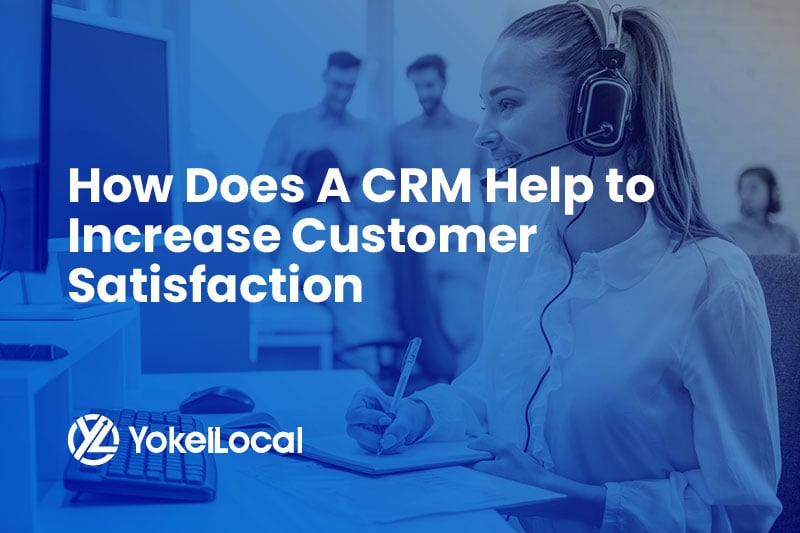We live in a customer-centric world. Marketers, salespeople and business owners must collect, organize, analyze, and utilize vast amounts of customer information to successfully compete and survive in today's market. A variety of customer relationship management (CRM) software is now available to help them do this.
Choosing the right CRM can be a challenge given your options, but you'll find that different CRMs are better suited to some tasks than others. Learning what each type does can help you choose the best software suite for your organization's needs.
8 Noteworthy CRM Statistics to Keep in Mind
Before we dive into the specifics, here are some mind-blowing statistics that convey the importance and impact of a CRM:
CRM Impact on Sales and Business Growth
- A whopping 79% of leads do not convert without CRM. (Thomson Data, 2019)
- When properly implemented, a CRM system can yield a 245% ROI. (Thomson Data, 2019)
- 65% of salespeople using a CRM saw an increase in their sales quota. (FinancesOnline, 2019)
- A properly implemented CRM can yield an ROI between $2.50 and $6.50 for every dollar invested. (Inc., 2019)
CRM Software Adoption
- 9 out of 10 firms with at least 10 employees use a CRM. (Agile CRM, 2019)
- While CRM growth continues, adoption rates among businesses are slow, with an average rate of 26% across all industries. (Agile CRM, 2019)
- 18% of salespeople still don't know what a CRM is. (HubSpot, 2017)
- 40% of salespeople don't use a CRM. Instead, they rely on informal methods, such as spreadsheets and email, to collect customer data. (HubSpot, 2016)
What is CRM (Customer Relationship Management) Software?
Customer relationship management (CRM) software is designed to help your business manage its relations with customers. It's mostly an interactive platform designed to collect, store, and manage data about customers and their interactions with your company.
A CRM...
- Serves as a centralized storehouse for all the information about a particular customer that you can silo in different departments
- Allows for the creation of a personalized journey for each customer with your business
- Provides a granular overview of every one of your processes
How Does a CRM Work?
Every CRM is unique. However, they all work by pooling the knowledge of many different people into one platform and making this information available to anyone who needs it.
CRMs gather and store information about prospects and customers from various touch-points with your business. These touch-points include contact forms, email and social media marketing, search engines, and more.
Today's CRMs include marketing automation, helping your customer service and sales teams automate routine tasks, and assign workflows as needed. They also have robust data collection and analysis functions and can provide valuable consumer insights.
Key features of most CRMs
Most CRMs share some key features, chief among them is the ability to store and analyze vast amounts of data on different aspects of your business:
- A contact management system that records key information about any customers and organizes them into segments, making personalization possible.
- Lead and scoring management system, allowing you to identify and prioritize high-quality (or hot) leads.
- Robust reporting and analytics capabilities, helping you to track sales and metrics of each customer interaction.
- Powerful marketing and customer support automation capabilities, allowing users to automate routine tasks to create a more consistent customer experience.
- Inventory tracking and forecast demand based on information such as customer habits and seasonal variations.
- Allows for a wide range of 3rd party integrations and customization, meaning you can grant users specific permissions and access to the CRM's data.
- On-site or cloud storage that can hold an immense amount of information about customer interactions and sales.
The three types of CRM software
Your CRM options fall into three broad categories:
- Operational
- Analytical
- Collaborative
CRMs in each of these categories offer a unique set of capabilities designed to improve specific areas of your business. Within each category, there are dozens to hundreds of CRM software to choose from, each focusing on a different bundle of capabilities.
Depending on the size of your organization and your needs, you may choose more than one CRM, with each one dedicated for specific teams, or a CRM that has features of all three types.
What each type of CRM offers:
- Operational CRMs use sales and marketing automation to help organizations manage day-to-day sales, marketing, and customer service operations.
- Analytical CRMs analyzes customer data coming from various touch points and channels allowing marketing and sales team to make smarter business decisions.
- Collaborative CRMs allow organizations to share customer info across several departments.
Who Should Use a CRM?
Any company that wants to manage its customers better can benefit from CRM.
A CRM is most useful to companies whose customers are typically involved in considered purchases. These customers have longer relationships with a company, which presents more opportunities for meaningful data collection and analysis.
Internally, CRMs are especially popular among sales, marketing, and customer service teams. However, anyone in a company can make valuable contributions to CRM.
There are nearly limitless benefits that can come from gathering more data about your customers and business to improve it.
Benefits of a CRM Platform
CRMs offer a vast array of benefits that can transform your company, marketing and sales:
- A CRM makes it easier for customers to interact with your business, allowing your team to engage in more high-value interactions with them. You'll also have an easier time building and maintaining long-term relationships with customers, as anyone in your company who needs to can immediately access a customer's information.
- Marketing and sales teams can make smarter decisions when choosing how many resources to devote to particular leads or channels when they have more intelligence about your customers.
- CRM software can improve your internal processes, in addition to transforming your customer-facing operations. A CRM can warn you about current or approaching bottlenecks in your supply based on current or projected demand.
- CRMs foster more productive communication between departments thanks to their information-sharing capabilities, improving the intelligence of your organization as a whole.
- You can design better products or services with more customer feedback and the information collected from them.
- You can run A/B tests among different segments of your customer base before a full roll-out.
Why is a CRM Important for Marketers & Sales Teams?
A CRM is an invaluable tool for today's marketers and sales team. A CRM...
- Provides a vast data collection, storing, and processing capabilities beyond those of any one person or team.
- Identifies relationships and flag points of friction customers experience
- Records every interaction a customer has with your company throughout their life cycle, from phone calls to purchases, allowing you to improve processes as needed.
- Helps calculate the lifetime value of each customer and identify which channels they used to find you. This allows you to effectively target your marketing and sales efforts to leads with the highest prospective value.
CRM Implementation & Utilization Challenges
One of the most common challenges businesses may face with a CRM is choosing the wrong one for their needs. Every CRM is different. While there are broad similarities across them, each will have a specific emphasis. Therefore, only a handful of options may be suitable for your particular needs.
Given their vast capabilities, under-utilization of a CRM is another common problem. As a best practice, at least one member of your team should become an expert in your chosen software.
However, the biggest problem with CRMs is not using one, making it imperative to adopt one if you haven't already.
How Much Does CRM Software Cost?
CRMs are typically priced along a sliding scale, with lower-priced starter versions offering basic functionality while higher prices unlock more advanced capabilities. Some can be purchased for just a few dollars a month, while others are priced well into the thousands. Some also allow you to purchase a permanent license.
Most CRMs offer a monthly, quote-based, or single-payment pricing schedule with monthly or annual commitments. Some, such as HubSpot CRM, offer simplified versions for free. You can expect to pay more for a CRM depending on the level of performance you want from it and the size and maturity of your business.
Startup firms might not need all the features a monthly package offers. Instead, they might opt for a CRM that allows them to purchase capabilities piecemeal. On the other hand, some of the most advanced CRMs are sold on a quote basis and may be more expensive for larger/enterprise companies.
CRM Solutions: Choosing A CRM for Your Business' Growth
Choosing the right CRM for your specific business needs is vital. You don't want to overpay for capabilities your business doesn't need and can't afford. Thankfully, many introductory CRMs are available for free. You can use the trial periods for experimentation to find the right one.
Here are three of the top CRM systems on the market right now and their pricing schedules:
HubSpot CRM
HubSpot's CRM is entirely free and includes a wide variety of features that help you manage contacts, automate simple processes, and produce reports. Unlike some other CRMs, their free version isn't a trial, never expires, and is fully functional.
HubSpot offers a variety of other software solutions that can integrate with their CRM. These include Marketing, Sales, Operations, Service, and CMS Hubs.
Salesforce
Salesforce is another popular CRM. Like HubSpot, Salesforce offers a wide array of other software applications that can integrate with its CRM and which are designed for specific use cases.
Freshsales
Freshsales by Freshworks is another popular CRM, with four different pricing tiers available for monthly or annual contract options. Like HubSpot, the Freshsales Sprout option is a fully-functional, free CRM that you can use for your business immediately.
A CRM is Only as Powerful as Its End-Users
A CRM can be a powerful tool for your business and is necessary to stay competitive in today's marketplace, where your ability to gather and harness customer data is more important than ever.
There is no one-size-fits-all CRM that works for every business. Successfully implementing your CRM is as important as choosing the right one, as it's only as effective as the salespeople and marketers who are using it. When applied to its full potential, a CRM is a driver of growth that can transform every aspect of your business.
Transform your digital presence with Yokel Local today! Discover tailored marketing strategies that drive real results. Contact Us Now and start growing your business online.














